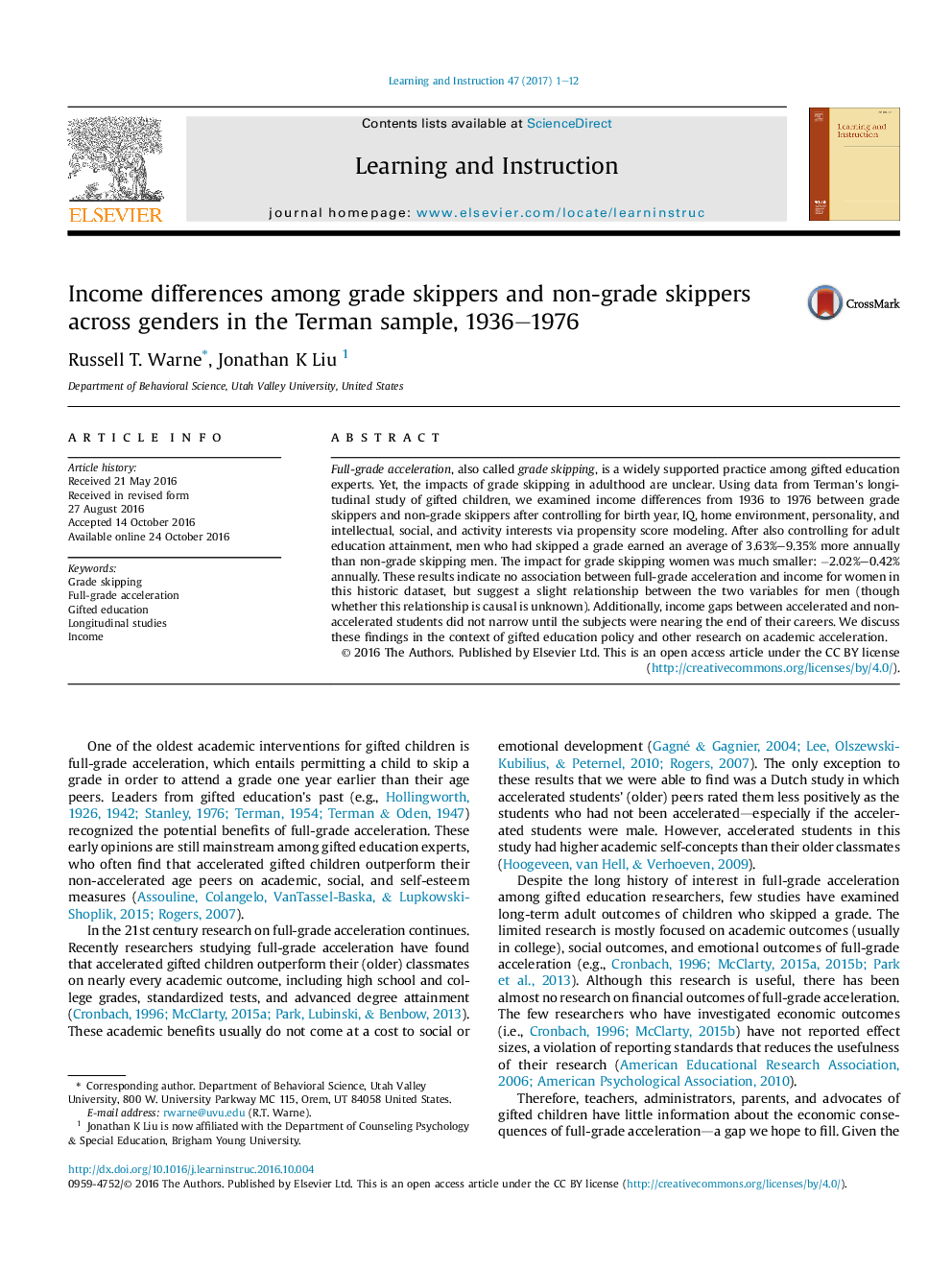| Article ID | Journal | Published Year | Pages | File Type |
|---|---|---|---|---|
| 4940302 | Learning and Instruction | 2017 | 12 Pages |
â¢A sample of high-IQ children were part of a longitudinal study for over 70 years.â¢Grade skipping men earned 3.63%-9.35% more per year than non-grade skipping men.â¢Grade skipping women earned â2.02%-0.42% more annually than non-skipping women.â¢For both genders the income gaps narrowed in late middle age.â¢Alternative statistical analysis shows these results are not a statistical artifact.
Full-grade acceleration, also called grade skipping, is a widely supported practice among gifted education experts. Yet, the impacts of grade skipping in adulthood are unclear. Using data from Terman's longitudinal study of gifted children, we examined income differences from 1936 to 1976 between grade skippers and non-grade skippers after controlling for birth year, IQ, home environment, personality, and intellectual, social, and activity interests via propensity score modeling. After also controlling for adult education attainment, men who had skipped a grade earned an average of 3.63%-9.35% more annually than non-grade skipping men. The impact for grade skipping women was much smaller:Â â2.02%-0.42% annually. These results indicate no association between full-grade acceleration and income for women in this historic dataset, but suggest a slight relationship between the two variables for men (though whether this relationship is causal is unknown). Additionally, income gaps between accelerated and non-accelerated students did not narrow until the subjects were nearing the end of their careers. We discuss these findings in the context of gifted education policy and other research on academic acceleration.
